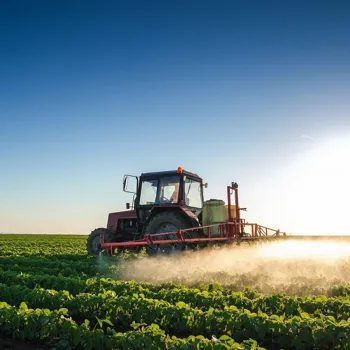Unveiling the Organic Food Debate: Is It Worth the Extra Cost? Dive into 5 Key Points! Curious to know more? Read on!
MUMBAI: In the bustling markets of Mumbai and the quiet farms of Punjab, a question
lingers: Is organic food truly worth the extra rupees? With growing awareness about health and the environment, more Indians are considering switching to organic options. But the higher price tag often gives pause.
Let's delve into five key aspects to help you decide if organic is the right choice for you and your family.
The Pesticide Question: How much are you willing to invest in reduced chemical exposure?
One of the biggest draws of organic food is the promise of fewer pesticides. Organic farming practices aim to minimize or eliminate the use of synthetic pesticides, herbicides, and fertilizers.

Instead, organic farmers rely on natural methods like crop rotation, composting, and beneficial insects to manage pests and maintain soil fertility. This is definitely a healthier option as we want to minimize the risk of chemical exposure.
However, it's crucial to understand that "pesticide-free" doesn't always mean zero pesticides. Organic farmers are sometimes allowed to use certain naturally derived pesticides, albeit under strict regulations.
These natural pesticides are generally considered less harmful than synthetic ones, but they still have an impact on the environment.
The question you need to ask yourself is: How much are you willing to spend to potentially reduce your exposure to synthetic pesticides?
Is the peace of mind worth the extra cost? Consider your family's health history, sensitivities to chemicals, and overall lifestyle when making this decision.
Nutrient Density: Does organic equal more nutritious?
The debate around the nutritional superiority of organic food compared to conventionally grown food is ongoing. Some studies suggest that organic produce may have slightly higher levels of certain nutrients, such as antioxidants, vitamins, and minerals.
This could be due to the organic farming practices that prioritize soil health, allowing plants to absorb more nutrients from the ground.
On the other hand, many studies have found no significant difference in the nutritional content of organic and conventionally grown foods.
Factors like soil type, climate, and harvest time can also influence the nutritional value of any food, regardless of whether it's organic or not.
So, while organic food may offer a slight nutritional advantage, it's not a guarantee.
A balanced diet rich in fruits, vegetables, and whole grains, whether organic or conventional, is the most important factor for good health. Focus on eating a variety of fresh, seasonal produce and whole foods, rather than solely relying on organic for your nutritional needs.
Environmental Impact: Is organic farming better for the planet and our mother earth?
Organic farming practices are often considered more environmentally friendly than conventional methods. Organic farming reduces the use of synthetic fertilizers and pesticides, which can pollute water sources, harm beneficial insects and wildlife, and contribute to soil degradation.
Organic farming also promotes biodiversity, encourages soil health, and helps to mitigate climate change by sequestering carbon in the soil.
However, organic farming also has its own environmental challenges.
Organic farms generally have lower yields than conventional farms, which means they may require more land to produce the same amount of food. This can lead to deforestation and habitat loss. Additionally, some organic farming practices, like tilling, can also contribute to soil erosion.
Ultimately, organic farming is a vital step towards a more sustainable food system, but it's not a perfect solution. When choosing organic, look for farms that are committed to sustainable practices and minimizing their environmental impact.
The Real Cost: Can your pocket actually afford it?
Organic food is generally more expensive than conventionally grown food. This is due to several factors, including higher labor costs, lower yields, and the certification process.
Organic farmers often face higher production costs and must adhere to strict regulations to maintain their organic certification.
Before making the switch to organic, it's essential to consider your budget and how much you're willing to spend on food.
Prioritize organic purchases based on your health concerns, environmental values, and the foods you consume most frequently. For example, you might choose to buy organic fruits and vegetables that are known to have high pesticide residues, such as apples, berries, and leafy greens.
Consider shopping at local farmers' markets or joining a Community Supported Agriculture (CSA) program to find affordable organic options. Growing your own fruits, vegetables, and herbs is another way to reduce your reliance on store-bought organic food and save money.
Decoding the Labels: What does "organic" actually mean in India?
In India, the term "organic" is regulated by the Food Safety and Standards Authority of India (FSSAI) under the National Programme for Organic Production (NPOP). To be labeled as "organic," food products must meet specific standards for production, processing, and labeling.
Look for certification marks like "India Organic" or "Jaivik Bharat" on organic food products. These marks indicate that the product has been certified by an accredited certification body and meets the NPOP standards.
Avoid products that make vague claims like "natural" or "eco-friendly" without proper certification.
Understanding the labeling requirements will help you make informed choices and ensure that you are actually buying authentic organic food.
Be wary of misleading claims and always look for genuine certification marks to verify the authenticity of organic products.
Key takeaways:
The decision of whether or not to buy organic food is a personal one.
There are potential benefits to consuming organic food, such as reduced exposure to pesticides and a more environmentally friendly production system. However, organic food is generally more expensive, and the nutritional differences between organic and conventionally grown foods are often minimal.
Consider your budget, health concerns, environmental values, and research credible sources of information to make a well-informed decision that aligns with your needs and priorities.
Remember, a healthy diet and lifestyle are the most important factors for your overall well-being, regardless of whether you choose organic or conventionally grown food.
AI Generated Content. Glance/InMobi shall have no liability for the content












